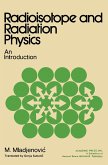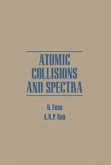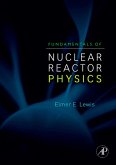This book is composed of five chapters and begins with a discussion on the variation principles for physical systems described by both inhomogeneous and homogeneous equations to develop a generalized perturbation theory. Chapter 2 deals with the applications of variational estimates and generalized perturbation theory to neutron transport problems. Chapter 3 covers the variation principles of the Lagrangian form that are constructed for a general, linear- time-dependent process and for the specific case of the P1 neutron kinetics equations. Chapter 4 presents the general procedure for the variational derivation of synthesis approximations and their applications to problems in reactor physics. This chapter also examines the relationship of the spatial synthesis and finite-element method and a hybrid method that combines features of both methods. Chapter 5 describes the relationship of variation theory with the Hamilton-Jacobi theory and with the optimization theories of the maximum principle and dynamic programming.
Nuclear physicists and researchers will find this text invaluable.
Dieser Download kann aus rechtlichen Gründen nur mit Rechnungsadresse in A, B, BG, CY, CZ, D, DK, EW, E, FIN, F, GR, HR, H, IRL, I, LT, L, LR, M, NL, PL, P, R, S, SLO, SK ausgeliefert werden.









